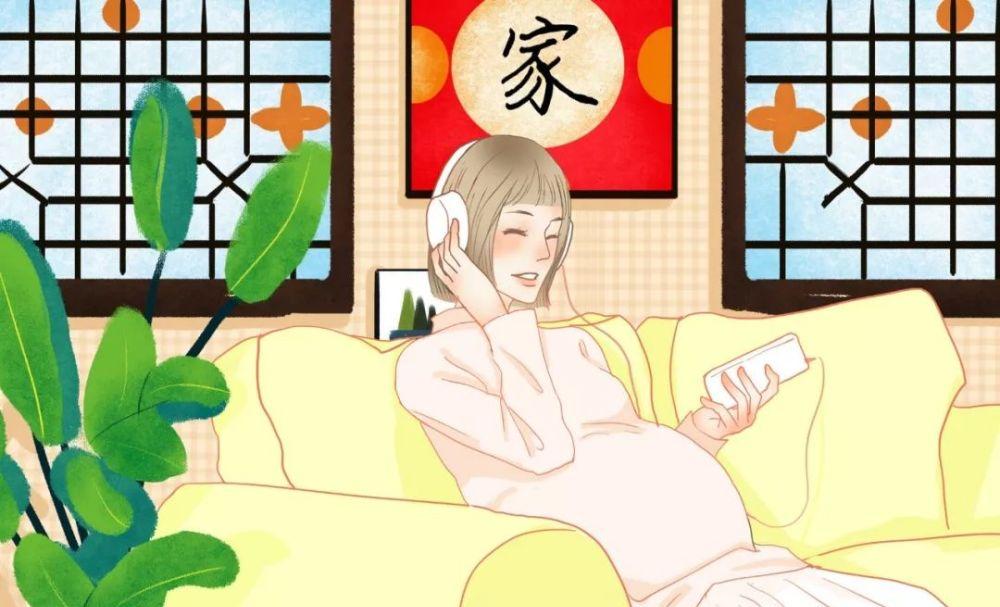The National Pregnancy and Baby Network is an intelligent pregnancy and infant care service platform sponsored by the Population and Culture Development Center of the National Health Commission under the guidance of the National Health Commission.
There are various taboos and traditions of Chinese confinement, many of which are outdated and old bad habits. Let's talk about what are the misunderstandings of confinement.

Myth 1 Avoid getting wet
Confinement is medically known as the puerperal period, which is about 6 weeks after childbirth. There will be frequent sweating during the month, and medically this sweating is called bedding sweat, which is to excrete excess water from the body. In addition to sweating, lochia is excreted, which contains placental attachments, decidua, and blood. Sweating and lochia, it will be more uncomfortable. All the mother has to do is wash her hair and take a bath, rest and relax. Of course, be sure to shower, not sit in. Second, pay attention to keeping the wound dry, especially for caesarean section wounds. After the cesarean section, it is recommended to take a bath after a week. After bathing, gently wipe the wound on the abdomen with a clean towel or gauze, disinfect it and then cover it with a compress.
Myth 2: Avoid brushing your teeth
During pregnancy, pregnant women will experience hyperemia, edema and bleeding in their gums under the action of hormones, especially when brushing their teeth. This is mainly because pregnant women do not take in enough nutrients during pregnancy, and the body lacks calcium, so the teeth do become bad after giving birth. As a result, many people think that pregnant women cannot brush their teeth. In fact, pregnant women in the confinement of the month to eat a lot of sugar, high-protein food every day, if not brushing, food residues remain in the teeth between the teeth, under the action of bacteria fermentation, acid production, resulting in tooth decalcification, the formation of caries or periodontal disease, and cause bad breath, mouth ulcers and so on. Therefore, during the month, you must brush your teeth every day, at least twice a day. Use a soft-bristled toothbrush and warm water to avoid excessive irritation to your teeth and gums.
Myth 3: Avoid cold
Fruits and vegetables contain a large amount of dietary fiber, and eating early and eating more after childbirth is conducive to maintaining intestinal patency and promoting early postpartum defecation. This is essential for postpartum recovery and also to avoid worsening postpartum hemorrhoids. Fruits do not need to be heated, but it is not recommended to eat foods that are too low.
Myth 4 Avoid activity
It is true that a lot of effort is expended during the childbirth process, but after proper rest, it is recommended that the mother get out of bed as soon as possible. Especially for shun mothers, it is recommended to move appropriately next to the bed the next day to mobilize physical functions as soon as possible to help return to normal. If you are bedridden for a long time and the blood is in a concentrated, hypercoagulable state, the likelihood of thrombotic disease will be greatly increased.
Myth 5 Avoid reading books
This is no scientific basis, reading books, looking at mobile phones are no problem, but pay attention to rest, can not maintain a posture to watch for too long, affecting vision and cervical spine.
In addition to ensuring diet, rest, cleaning, and getting out of bed as soon as possible, new mothers should also do the following: avoid blowing wind and cold, room temperature is generally 25 ° C ~ 28 ° C is appropriate; start breastfeeding as early as possible; and check on time after childbirth.
It should be noted that the family should take good care of and psychological counseling for women with depressive tendencies, and seek medical treatment in time if necessary to help women successfully pass the postpartum period.
Text: Yue Jing, deputy chief physician of the Department of Obstetrics and Gynecology, Tongji Hospital, Huazhong University of Science and Technology
-End-